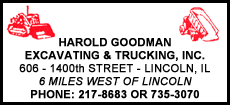| ||||||||||
| ||||||||||
But North Carolina's largest city has refused to release many other details, citing national security concerns, despite public records requests by The Associated Press. Tampa also received $50 million in federal funds for security. The AP filed a similar request with the Tampa Police, but was rebuffed by officials there citing homeland security concerns. With the convention in mind, Charlotte adopted an ordinance in January allowing it to create designated areas for people to gather for large-scale events and prevent them from carrying backpacks and other items in those areas. The protests are being held in designated areas in the business district, and the crowds can be easily moved between those areas, police said. The city's landscape and the close proximity of the major convention venues will help security, said J. Michael Bitzer, a history professor at Catawba College. "Everything from Time Warner Arena to Bank of America Stadium is within fairly close proximity of everything. You're going to have so many people concentrated in such a small area of the city that that's a good thing," Bitzer said. "The compactness should present a fairly clear delineation of protest space. It's not like with the Olympics now where you're all over England. Everybody is going to be in one kind of centralized location. The smaller the space you have to protect, the more you're going to be able to keep a close eye on a lot going on." But one disadvantage: the area is close to major highways. "You've got major thoroughfares -- I-77 and I-277 -- that are so close to these venues that the question is what's going to be the spillover effect of maybe having to close those downs?" he said. The major political conventions had been mostly peaceful for nearly four decades following disturbances at the Democratic gathering in Chicago 1968 and the 1972 Republican convention in Miami. But things changed in 2008 when the Republicans held their convention in St. Paul, attracting thousands of protesters. Some smashed cars, punctured tires and threw bottles in a confrontation with pepper-spray wielding police. Hundreds were arrested over a few days, including dozens of journalists.
Deputy Chief Harold Medlock said the Chicago trip showed Charlotte police were on the right track with security preparations, especially related to crowd control. He declined to elaborate on what tactics police would use. Chicago Police Superintendent Garry McCarthy said the keys to policing a big event are "having a good plan that is agile and flexible." "You can't be static, standing in one spot and expecting to handle what is going on. You have to have a ton of training to give your officers an expertise in taking people out of the crowd if they are acting up and engaging in criminal behavior," McCarthy said. Ninety-five arrests were made during the NATO summit in May, about 50 of which were people removed from the crowd by extraction teams that included officers on horseback. He said many of those arrested were anarchists who attacked police. He said 65 of the arrestees were from outside Chicago. "Throwing rocks and bottles and bags of urine at us is pretty aggressive behavior," he said. One key tactic was clustering uniformed officers at potential targets for vandalism to prevent property damage and using bicycles to make them more mobile. McCarthy also stressed using "the soft look"
-officers dressed in their normal uniforms but ready to quickly change into "turtle suits," tactical helmets and body armor, if necessary. "The last resort is to go to the turtle suits and batons," McCarthy said. "There's a psychology to that. If you come out in a confrontational manner, you are going to receive confrontation in return."

[Associated
Press;
Copyright 2012 The Associated Press. All rights reserved. This material may not be published, broadcast, rewritten or redistributed.
News | Sports | Business | Rural Review | Teaching & Learning | Home and Family | Tourism | Obituaries
Community |
Perspectives
|
Law & Courts |
Leisure Time
|
Spiritual Life |
Health & Fitness |
Teen Scene
Calendar
|
Letters to the Editor